

Getting to know someone’s work style and analyzing your own can help you improve your working relationship with someone.
Maybe you have to work closely with a co-worker, teacher, student teacher, assistant, paraprofessional, or volunteer. Sometimes those pairings can be a dream come true and other times…not so much.
We all have our own ideas of what a “good worker” looks like. When we don’t have the same work style as someone else, tensions may develop and disagreements may follow.
Gaining understanding and empathy of where someone else is coming from and how they work best can improve your working relationship and help you all work together better.
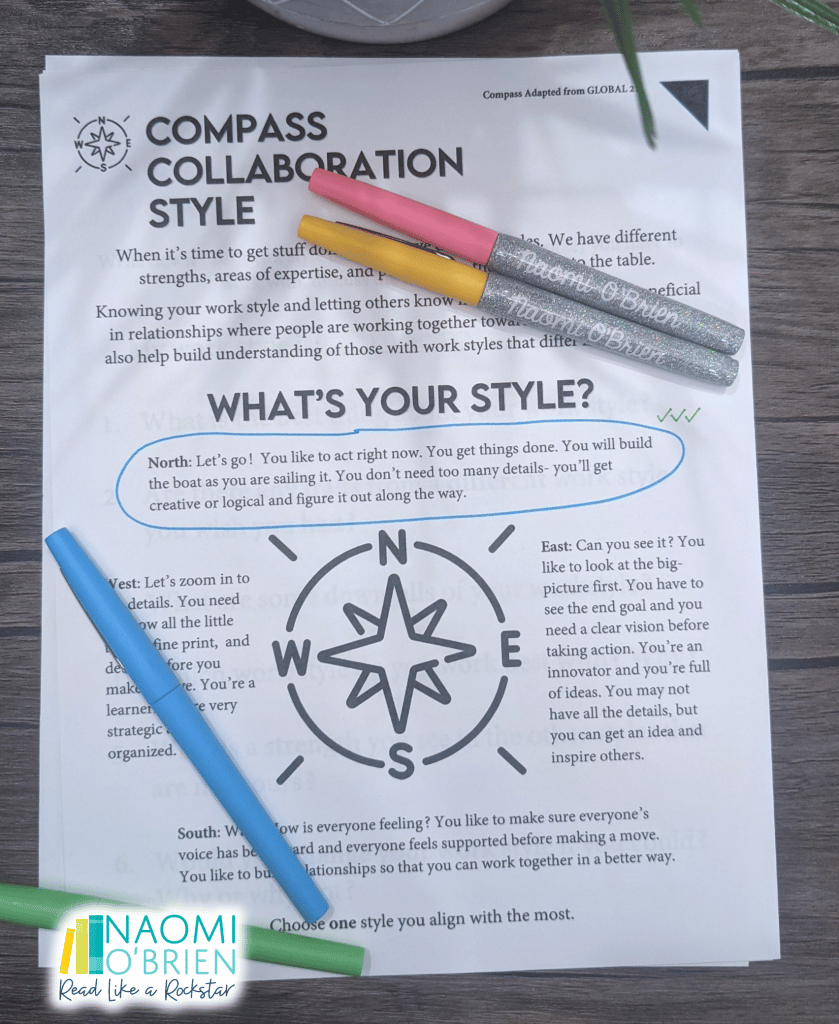
Figure our your work style. Are you a leader and a go-getter? Do you see the big picture or love to get caught up in the details? Or is your style more supportive. Knowing this about yourself and being able to communicate your style to others can help. These styles have been adapted from Global 21.
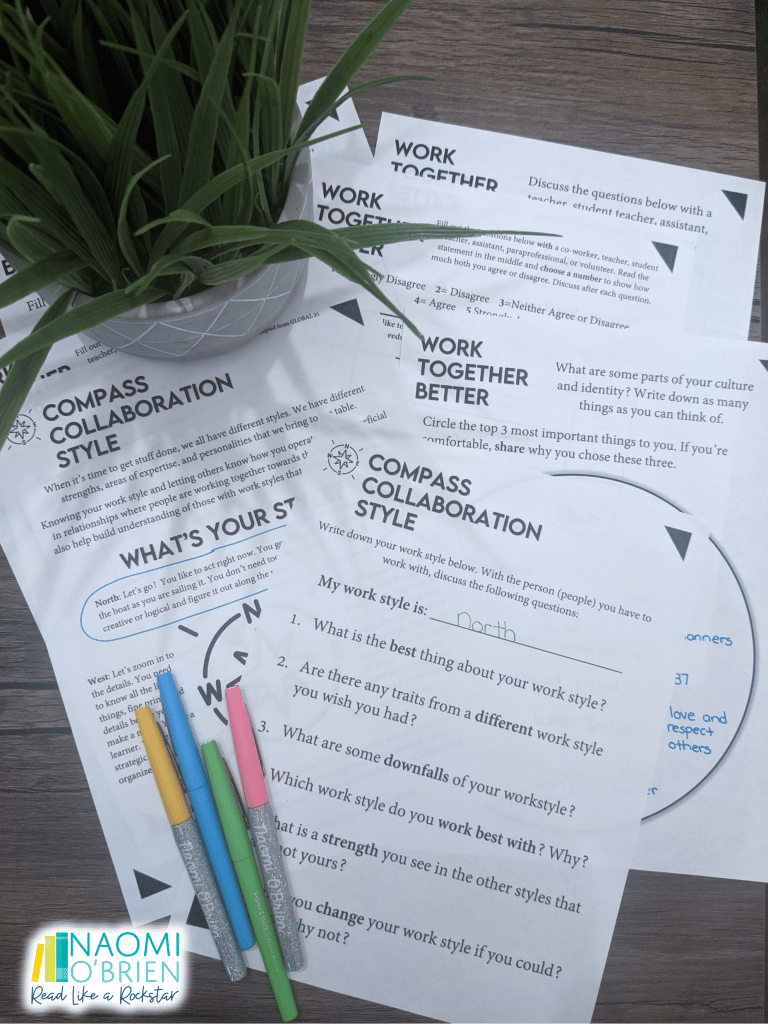
After you figure out your workstyle and the style of the person (or people) you’ll be working closely with, discuss it.
I can’t tell you how many times I was able to extend grace and understanding because I had knowledge of someone’s work style differed from mine!
I personally am I north. I’m a go getter. I like to get things done. This may come off as impulsive to other people. Others, who don’t get things done quickly because they need all the details first, are the complete opposite of me.
I wrote a book and create resources with one of my best friends, LaNesha Tabb. She’s a details person. She can’t make a move if she doesn’t know the who, when, where, what and why of things. We actually work well together, because I help us make moves even when we don’t have all the details yet, but she keeps me organized and on track, since I often jump in a little too quickly on some projects.
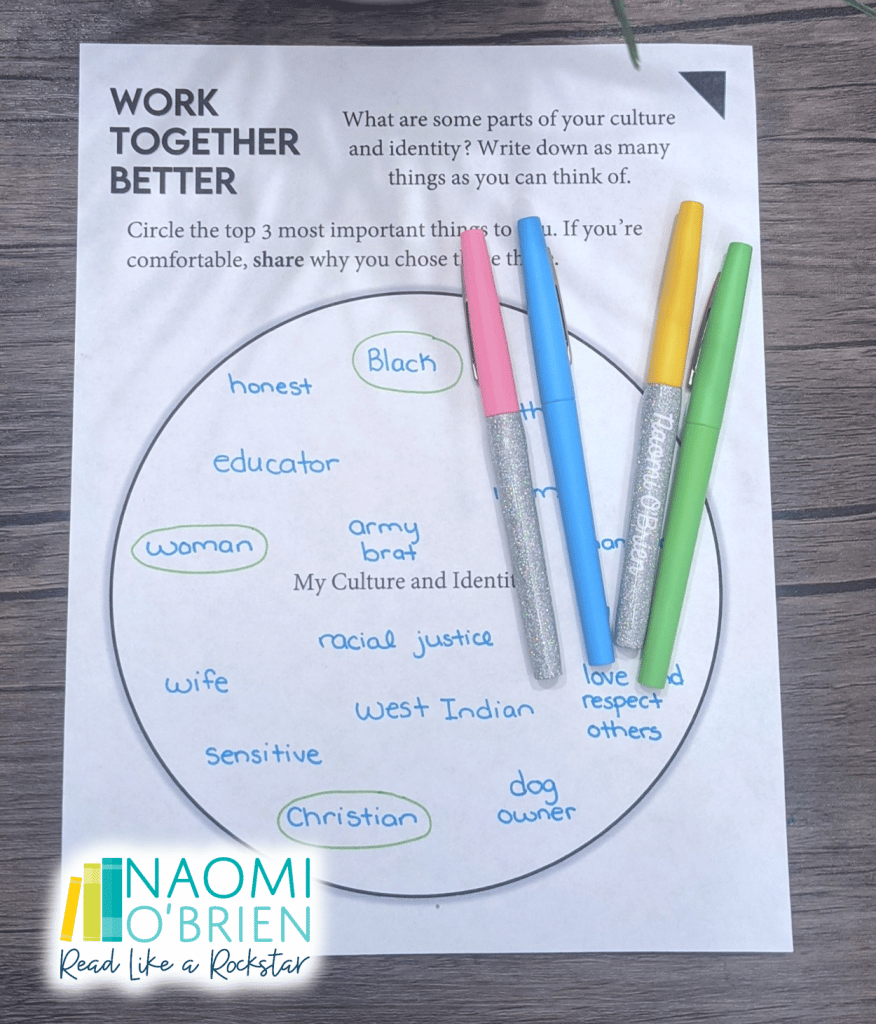
Identity and cultural differences can make a huge difference in work dynamics and taking the time to understand them can help you gain critical understanding of the person/people you’re working with.
I suggest giving 10 minutes for everyone to brainstorm what they want to write down. Sometimes you might think you can’t think of anything else, but keep thinking for the whole ten minutes to add as much as possible.
Remember that culture is EVERYTHING. It isn’t just holidays and foods. It’s everything that makes you YOU!
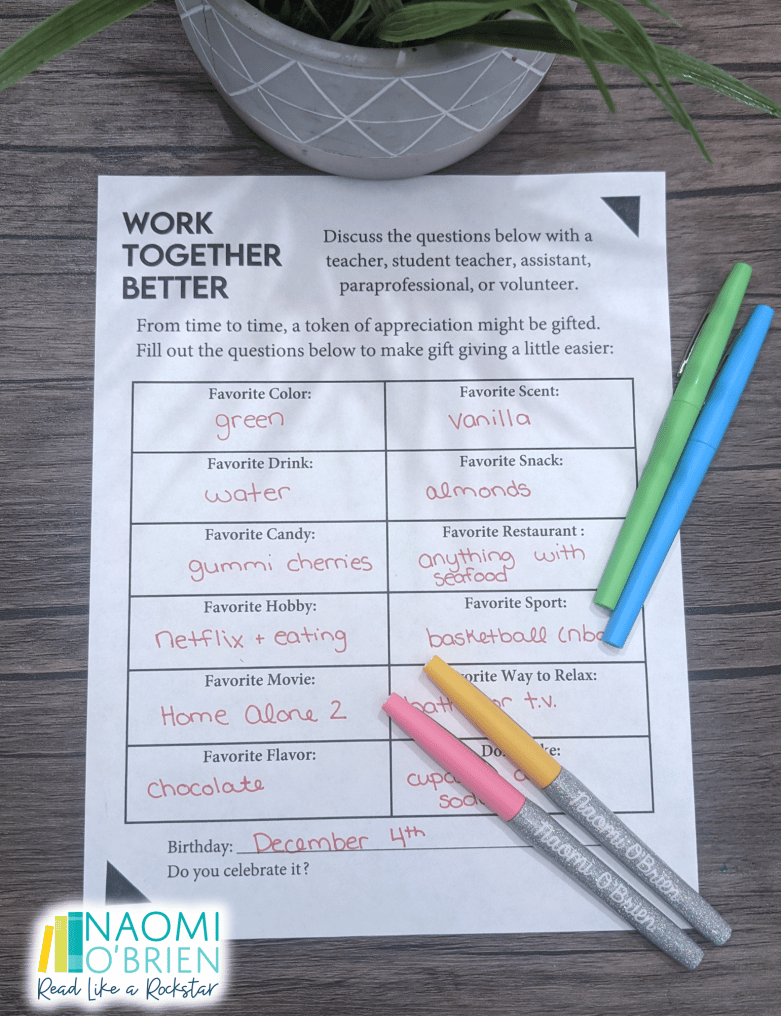
A fun gift-giving getting to know you sheet could come in handy when you want to gift small tokens of appreciation from time to time.
Though, don’t think you have to “wow” each other with gifts to build your relationship. Small notes and kind compliments/positive feedback can go a long way to.
Remember to be specific with your compliments/feedback. “Thank you for being here on time. ” “I like how you are keeping this area organized.” “Thank you for being clear with your directions.” “Thank you for responding so quickly to my email. I really appreciated it.”
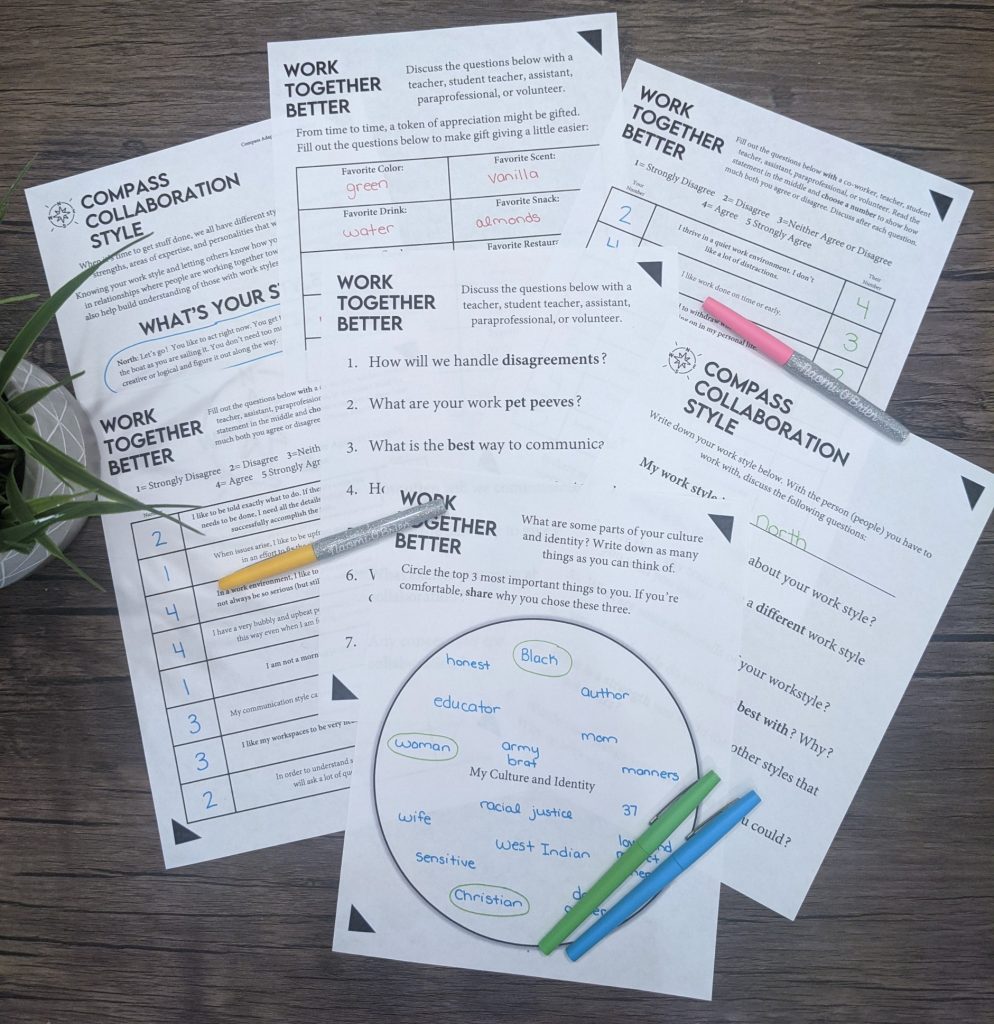
You can discuss questions about different situations that can come up at work and discuss how you both (or all) would handle it.
You’d be surprised on the different approaches people would take and why. All of this discussion is sure to lead to understanding and a closer working relationship.
For example:
“I like to be micromanaged and told exactly what to do.” Agree or Disagree?
“I need my work space to be organized at all times.” Agree or Disagree”
Questions like this and others can help you learn so much about each other and stay ahead of tension and disagreements.
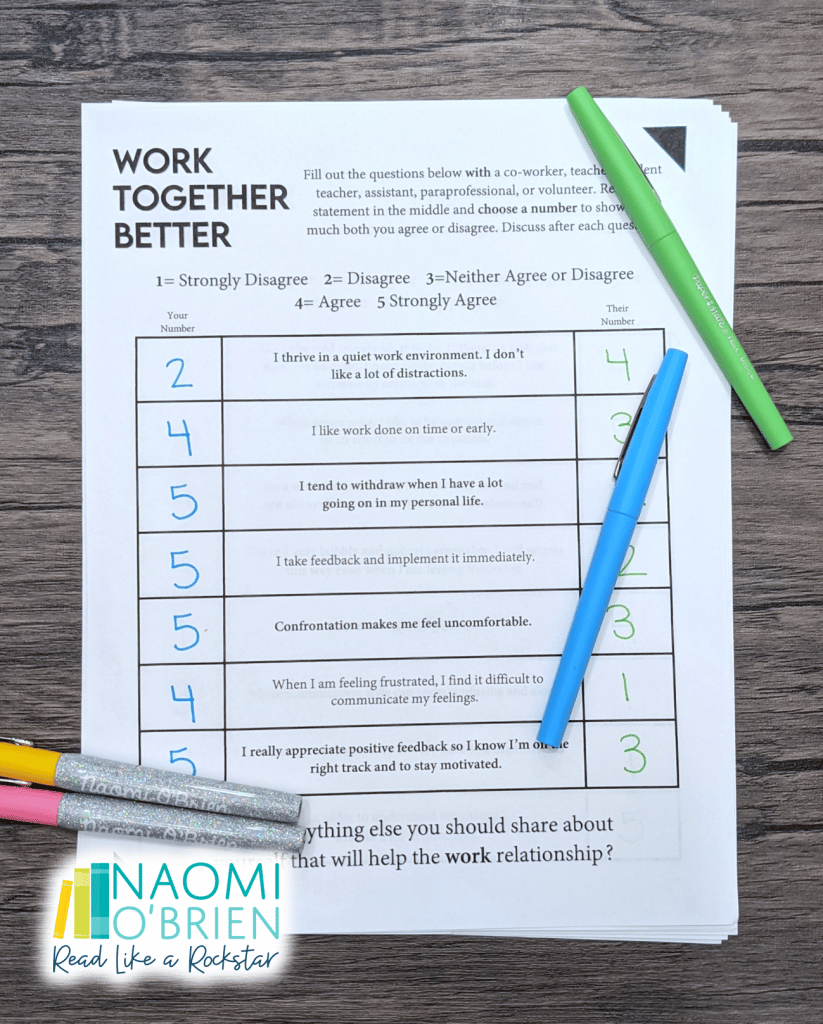
I once worked with someone (my para) who did want to be micromanaged! It was a shock to me, because that’s my worst nightmare, but it helped my relationship with her. I knew she didn’t mind being given tasks to do and being checked in on about how they were going. She welcomed it! I could be more clear with directions without feeling like I was bothering her, and she felt like she knew what has expected of her and appreciated it so much.
One last thing you might consider doing is scheduling check-in time. Maybe it will be once a week or even once a month, but schedule time to check in about how things are going. Is everyone feeling heard and respected? Are there any concerns or questions that need to be answered? Bring it up during your check-ins.
Make intentional time for that so that problems don’t go unaddressed and needs can be met!
I hope this was helpful. Leave me a comment and let me know any other things you do to build a great working relationship.

Click any of the images to purchase the resource shown.


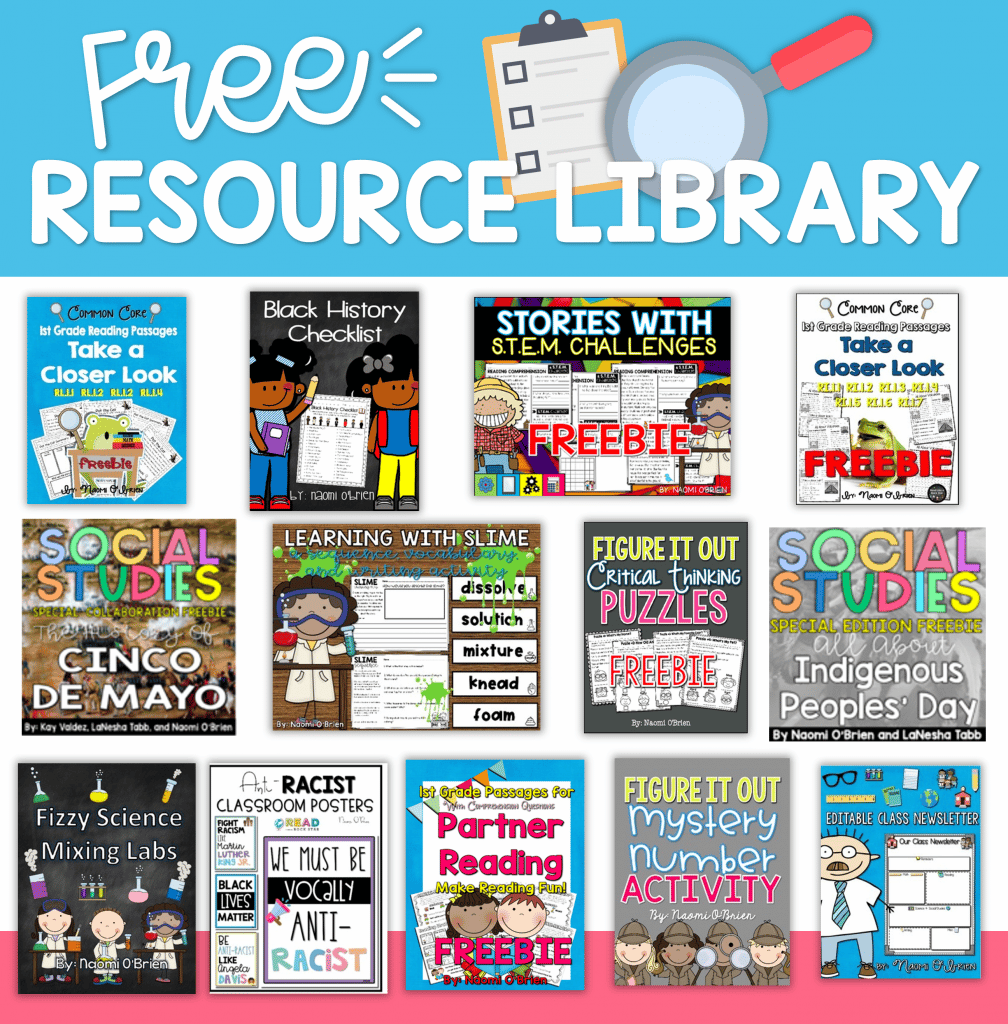
| Cookie | Duration | Description |
|---|---|---|
| cookielawinfo-checkbox-analytics | 11 months | This cookie is set by GDPR Cookie Consent plugin. The cookie is used to store the user consent for the cookies in the category "Analytics". |
| cookielawinfo-checkbox-functional | 11 months | The cookie is set by GDPR cookie consent to record the user consent for the cookies in the category "Functional". |
| cookielawinfo-checkbox-necessary | 11 months | This cookie is set by GDPR Cookie Consent plugin. The cookies is used to store the user consent for the cookies in the category "Necessary". |
| cookielawinfo-checkbox-others | 11 months | This cookie is set by GDPR Cookie Consent plugin. The cookie is used to store the user consent for the cookies in the category "Other. |
| cookielawinfo-checkbox-performance | 11 months | This cookie is set by GDPR Cookie Consent plugin. The cookie is used to store the user consent for the cookies in the category "Performance". |
| viewed_cookie_policy | 11 months | The cookie is set by the GDPR Cookie Consent plugin and is used to store whether or not user has consented to the use of cookies. It does not store any personal data. |
Thank you for your interest in booking a private professional development experience! Please fill out our Booking Inquiry form and a member of our team will contact you soon.